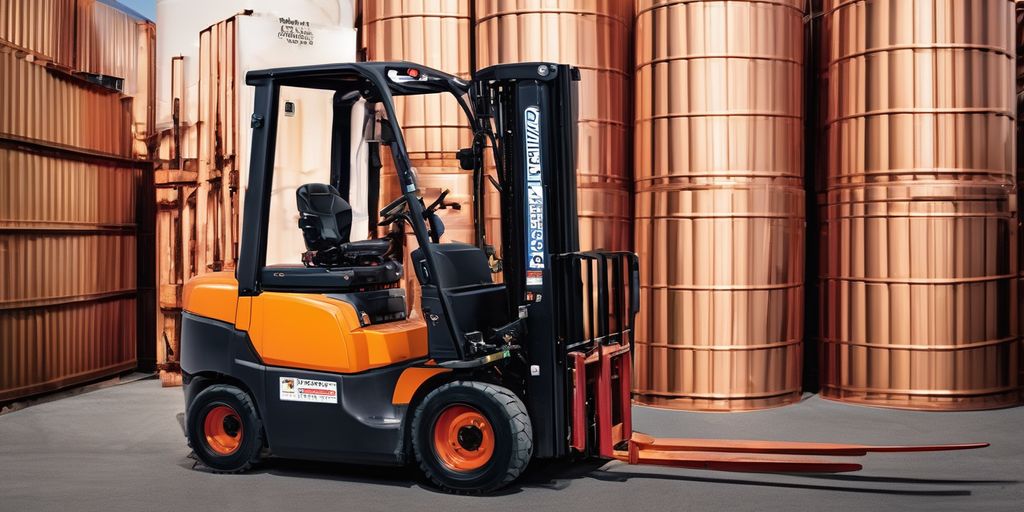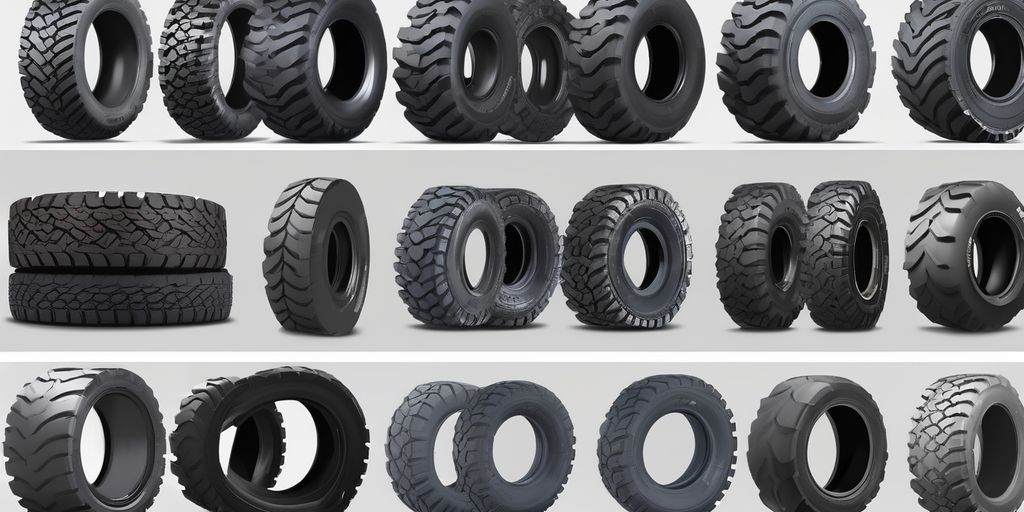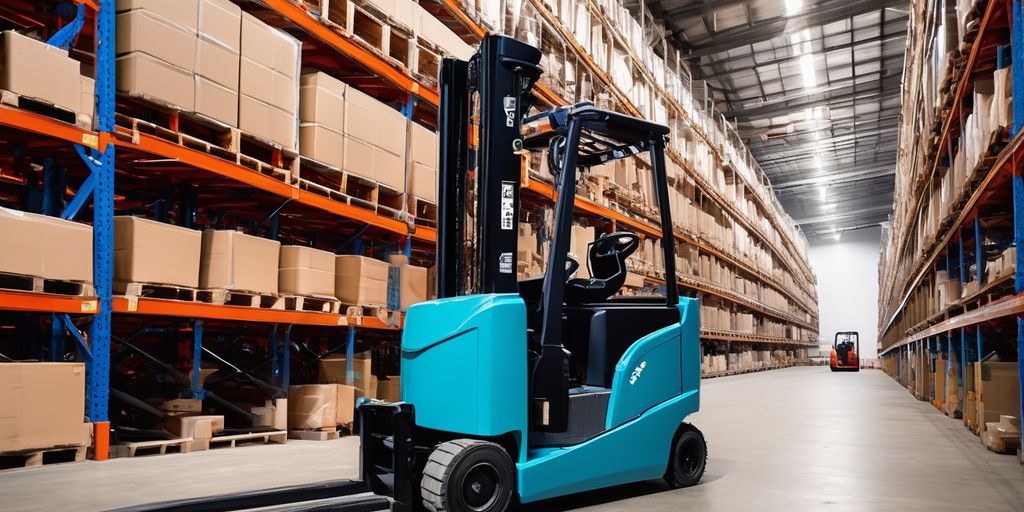Propane-powered forklifts are a popular choice in many industries. They are known for their efficiency, cost savings, and versatility. However, using these machines safely is very important. This article will discuss the benefits of propane forklifts and provide safety tips for operators.
Key Takeaways
- Propane forklifts are efficient and help boost productivity.
- They offer significant cost savings and lower emissions compared to other fuels.
- These forklifts can be used both indoors and outdoors due to their fuel versatility.
- Safety measures, like wearing protective gear and inspecting cylinders, are crucial for operators.
- Proper maintenance and understanding of propane safety can enhance workplace safety.
Key Benefits of Using Propane-Powered Forklifts

Propane-powered forklifts offer a range of benefits that make them a popular choice in various industries. From enhanced efficiency to cost savings, these forklifts are designed to meet the demands of modern workplaces.
Efficiency and Productivity
Propane forklifts are known for their longer engine life and consistent performance. They can operate both indoors and outdoors, making them versatile for different work environments. Additionally, they produce reduced noise levels, which can contribute to a quieter and more comfortable workplace.
Cost Savings and Reduced Emissions
Using propane as a fuel source can lead to significant cost savings. Propane is often cheaper than gasoline or diesel, and it burns cleaner, resulting in fewer emissions. This makes propane forklifts a better choice for businesses looking to reduce their environmental impact.
Fuel Versatility for Indoor and Outdoor Use
One of the biggest advantages of propane-powered forklifts is their fuel versatility. They can be used both indoors and outdoors without compromising performance. This flexibility allows businesses to streamline their operations and reduce the need for multiple types of equipment.
Enhance your warehouse efficiency with propane-powered forklifts. Discover the advantages of using propane as a clean and reliable fuel source.
Essential Safety Tips for Propane Forklift Operators
Operating propane forklifts requires strict adherence to safety protocols to ensure a safe working environment. Here are some essential tips to keep in mind:
Wearing Personal Protective Equipment
Always wear personal protective equipment (PPE) to cover your skin when connecting or disconnecting propane cylinders. This includes gloves, safety glasses, and long sleeves to protect against potential propane leaks or spills.
Inspecting Propane Cylinders
Before starting the forklift, inspect propane cylinders for any signs of damage or leaks. Look for dents, rust, or other visible damage that could compromise the cylinder's integrity. Ensuring the cylinder is in good condition is crucial for safe operation.
Safe Operation Practices
Follow safe operation practices at all times. This includes stopping the forklift before raising or lowering the forks and setting the parking brake when the forklift is not in use. Additionally, always be aware of your surroundings to avoid dangerous collisions.
Safety first: best practices for operating a forklift include the importance of safe refueling, daily inspections, and pedestrian safety.
By following these safety tips, you can help create a safer workplace and reduce the risk of accidents involving propane forklifts.
Understanding Propane Tank Safety
Educating Workers on Propane Safety
Propane safety is a key consideration, especially if a business uses propane-powered forklifts. By educating workers about propane tank safety, you can prevent accidents and ensure a safer work environment. Training should cover how to handle propane tanks, recognize signs of damage, and check for leaks using soapy water—bubbles indicate a leak.
Handling and Storage Guidelines
Proper handling and storage of propane tanks are crucial. Always store propane tanks in a well-ventilated area, away from heat sources. When handling propane tanks, check for any signs of damage, rust, or leaks. Use soapy water to check for leaks around the valve area—bubbles indicate a leak.
Pressure Relief Valve Importance
The pressure relief valve is an essential safety feature on propane tanks. It helps to release excess pressure, preventing potential explosions. Regularly inspect the valve to ensure it is functioning correctly. If you notice any issues, address them immediately to maintain safety.
Ensuring the safety of propane tanks involves regular inspections and proper training for all workers. This proactive approach can significantly reduce the risk of accidents and improve overall workplace safety.
Maintenance and Inspection of Propane Forklifts
Regular Maintenance Routines
Regular maintenance is crucial for the safe and efficient operation of propane forklifts. A well-maintained forklift enhances safety, efficiency, and reliability. Operators should follow a preventative maintenance checklist that includes inspecting the fuel line and propane tank for any damage or leaks, checking fluid levels, and ensuring that all safety features are functional.
Inspecting Fuel Systems
A thorough inspection of the fuel system is essential. This includes checking the pressure gauge to ensure it is in the green area and examining the fuel line for any signs of wear or damage. Regular visual inspections should be done with the forklift's engine off to ensure safety.
Addressing Common Issues
Common issues such as leaks, worn-out tires, and malfunctioning lifting components should be addressed promptly. Operators should be trained to identify these problems and report them immediately. Regular troubleshooting and adherence to strict safety protocols can prevent accidents and downtime.
Regular maintenance schedules and troubleshooting are key to keeping propane forklifts in top condition. Operator training and strict safety protocols are crucial for industrial settings.
Enhancing Workplace Safety with Propane Forklifts
Avoiding Dangerous Collisions
Preventing collisions is crucial for maintaining a safe work environment. Operators should always be aware of their surroundings and follow designated pathways. Regularly inspecting the forklift for any signs of wear or damage, such as cracks or bends in the forks, can help avoid accidents.
Ensuring Proper Ventilation
Proper ventilation is essential when operating propane forklifts indoors. This helps to prevent the buildup of harmful gases. Make sure that the workspace has adequate airflow and that ventilation systems are functioning correctly.
Emergency Response Procedures
In case of an emergency, having a clear and practiced response plan is vital. Workers should be trained in emergency procedures, including how to handle propane leaks or spills. Regular drills can ensure everyone knows what to do in a crisis.
Safety measures, equipment inspections, and emergency preparedness are key to protecting your workforce and operations.
Environmental Impact of Propane Forklifts
Reduced Emissions
Propane forklifts are known for their reduced emissions compared to diesel and gasoline-powered models. This makes them a cleaner option for both indoor and outdoor use. By choosing propane, businesses can significantly lower their carbon footprint, contributing to a healthier environment.
Sustainable Fuel Options
Propane is a versatile and sustainable fuel choice. It is not only efficient but also helps in reducing the overall environmental impact. Companies looking for cost-effective solutions can benefit from renting propane forklifts, which offer both economic and environmental advantages.
Compliance with Environmental Regulations
In some regions, like California, regulations are being put in place to phase out large fossil fuel-powered forklifts by 2038. This highlights the importance of adopting propane forklifts to stay compliant with evolving environmental laws. By doing so, businesses can avoid penalties and contribute to a greener future.
Using propane forklifts is a step towards sustainable practices, ensuring that businesses not only meet regulatory requirements but also promote a cleaner and safer environment for everyone.
Conclusion
Propane tank forklifts offer many benefits, including efficiency, cost savings, and reduced emissions. They are a great choice for both indoor and outdoor use. However, safety should always come first. By following proper safety tips, like wearing protective gear and being aware of your surroundings, you can ensure a safe working environment. Educating workers about propane safety is also crucial. With the right precautions, propane forklifts can be a reliable and safe option for your business.
Frequently Asked Questions
What are the main benefits of using propane-powered forklifts?
Propane forklifts are efficient and boost productivity. They save costs, reduce emissions, and can be used both indoors and outdoors.
What safety gear should I wear when operating a propane forklift?
Always wear personal protective equipment, like safety glasses and thick gloves, especially when handling propane cylinders.
How should I inspect propane cylinders?
Check for any damage or leaks before using the forklift. Make sure the pressure relief valve is working properly.
Can propane forklifts be used indoors?
Yes, one of the big advantages of propane forklifts is that they can be used both indoors and outdoors due to their clean emissions.
Why is it important to educate workers about propane safety?
Educating workers helps prevent accidents and ensures everyone knows how to handle and store propane safely.
What should I do if there's a propane leak?
If you detect a propane leak, turn off the forklift, move to a safe area, and report the leak to your supervisor immediately.




Leave a comment
This site is protected by hCaptcha and the hCaptcha Privacy Policy and Terms of Service apply.